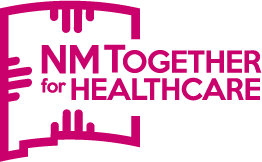By Anna Rondon from Chi Chil Tah, McKinley County
This op-ed by By originally appeared in the Gallup Sun News.
I couldn’t breathe. My chest felt like it was on fire. I thought I was having a heart attack. And I was terrified.
Alone in my car, on my way home to my kids after work, all I could do was react. I instinctively drove the two miles to Rehoboth McKinley Christian Hospital. They admitted me right away.
It wasn’t a heart attack; it was gallstones, but the hospital didn’t have the right equipment to treat me.
I needed to be transported to Albuquerque.
After receiving pain medication, I wasn’t coherent. I was scared and still in so much pain. The billing people came in to see me. All I remember is them saying to sign here and sign there. I did.
Then I was rushed more than 100 miles by ambulance to Presbyterian Hospital.
I had insurance, so I never thought about the cost of the care I needed. I just focused on getting better so that I could go home to my kids.
The doctors at Presbyterian treated me immediately and I stayed overnight at the hospital before traveling by ambulance back to Gallup to recover. Fortunately, my aunt was able to stay with my children.
It took some time, but I recovered fully, and went back to my job with the Navajo Nation and being a mom.
Two months later, though, I again felt like I couldn’t breathe: I received a bill from Rehoboth for an $800 copay and one from the ambulance company for $1,200. My insurance didn’t cover these costs.
That was 1996. At that point in my life I was looking for coins in the couch and buying ramen noodles. Even working full time there was no way I could pay those bills. But the Rehoboth collections people kept harassing me.
The letters and the calls kept coming. They published in the liens section of the Gallup Independent that I owed them money. There were no forgiveness plans or ways to help patients like me with payment plans. It was humiliating.
I was never able to pay those bills and it impacted my credit for years.
I couldn’t get a better vehicle because the interest rates that I could get with my credit score were way too high. I couldn’t afford a car. For years I had to take my kids to school in a car that we were always afraid would break down—which it often did. Having this medical debt on my credit record impacted our safety.
There is a ripple effect, but collections agencies and the hospitals don’t think about that. They only focus on the money.
All these years later, I am still working to fix my credit. The Rehoboth bill really hurt. What hurt even more, though, was the way I was treated when I couldn’t pay those bills. The healthcare industrial complex doesn’t take into account that we’re not dollar bills, we’re human beings.
That is why I am supporting SB 71, the Medical Debt Protection Act. This bill will prevent hospitals and other healthcare providers in New Mexico from sending people who earn 200 percent or less of the poverty level to collections. Instead of ruining a patient’s credit for years, providers will need to work with patients to help them pay their bills. Plus, hospitals won’t be able to charge uninsured people higher prices and will have to post all procedure costs online.
We need more policies that protect families like mine with an equitable process, instead of letting debt collectors prey on low-income people. Right now what we have is a chain-reaction of oppression and those chains bind us to medical debt. Then we are criminalized.
I needed emergency care all those years ago, and I am grateful to the doctors and nurses who helped me. But no one should survive emergency surgery only to be hurt by medical debt. I urge the New Mexico Legislature to pass the Medical Debt Protection Act, and for the governor to sign it into law. Medical debt is the worst thing I’ve ever had to recover from.


